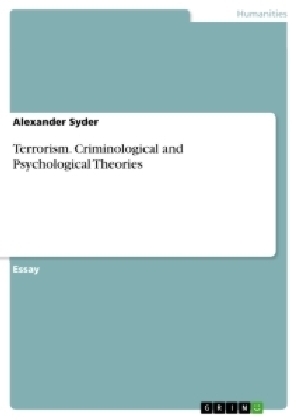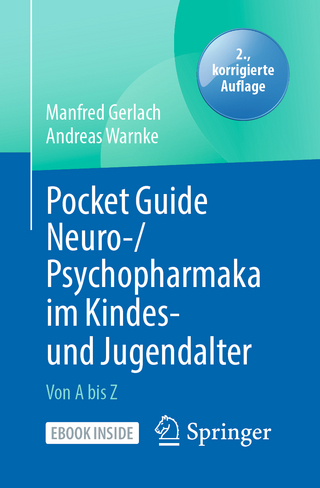
Terrorism. Criminological and Psychological Theories
GRIN Verlag
978-3-668-39069-0 (ISBN)
- Titel nicht im Sortiment
- Artikel merken
Alexander James Syder
E-mail: a.syder@yahoo.co.uk
ACADEMIC QUALIFICATIONS:
Forensic Psychology (MSc) at University of Lincoln (Present).
Psychology (MSc) at Sheffield Hallam University (September 2014 - June 2016). (GBC, MBPsS).
Criminology and History (BA) Hons. University of Lincoln.
- Master of Science (MSc) Psychology dissertation investigated autobiographical memories in relation to future decision-making using a questionnaire (qualitative and quantitative) that investigated past episodic episodes of their previous experiences. The study used a mixed methods design, primarily with a thematic analysis with three themes of investigation:
'The prevalence and impact of autobiographical memories through thematic categorical classification: their impact on self-identity and self-expression'.
Firstly, autobiographical memories are primarily functions of goal construction.
Secondly, those memories are congruent to the self, and likely to place the participant at the centre of all previous experiences/events.
Thirdly, since it is hypothesized that there will be an egocentric element to the responses, this should coincide with increased use of pronoun density. The third thematic discourse theme has analysed selective examples of the use of (I, me and my).
My dissertation received a merit overall, and was praised for its interesting premise as a study that could be adapted upon in the future (Dr. Christine Wells, Dr. Anna Di Betta, Sheffield Hallam University).
| Erscheinungsdatum | 10.02.2017 |
|---|---|
| Sprache | englisch |
| Maße | 148 x 210 mm |
| Gewicht | 38 g |
| Themenwelt | Geisteswissenschaften ► Psychologie |
| Medizin / Pharmazie ► Medizinische Fachgebiete ► Psychiatrie / Psychotherapie | |
| Schlagworte | CriminologicalTheories • forensicpsychology • PsychologicalTheories • Psychologie • terrorism |
| ISBN-10 | 3-668-39069-X / 366839069X |
| ISBN-13 | 978-3-668-39069-0 / 9783668390690 |
| Zustand | Neuware |
| Haben Sie eine Frage zum Produkt? |
aus dem Bereich


